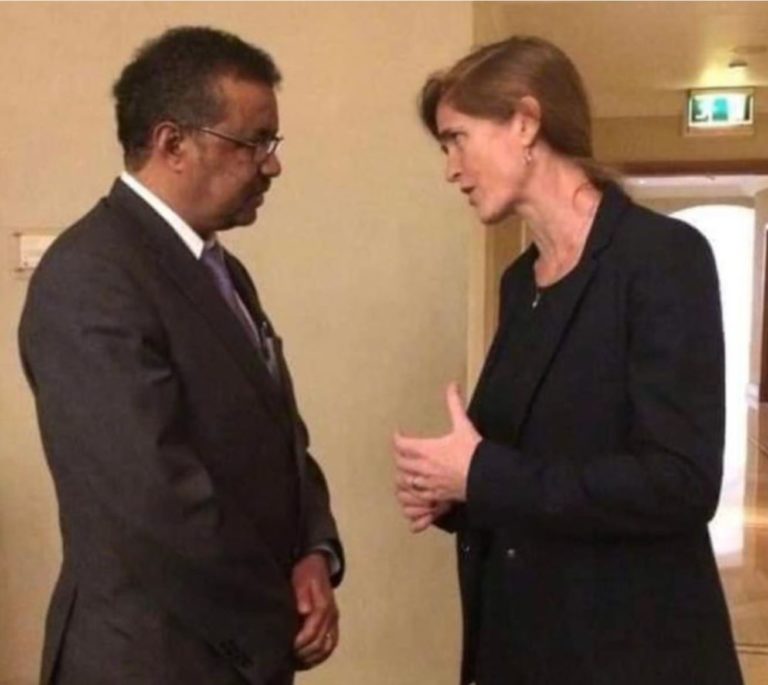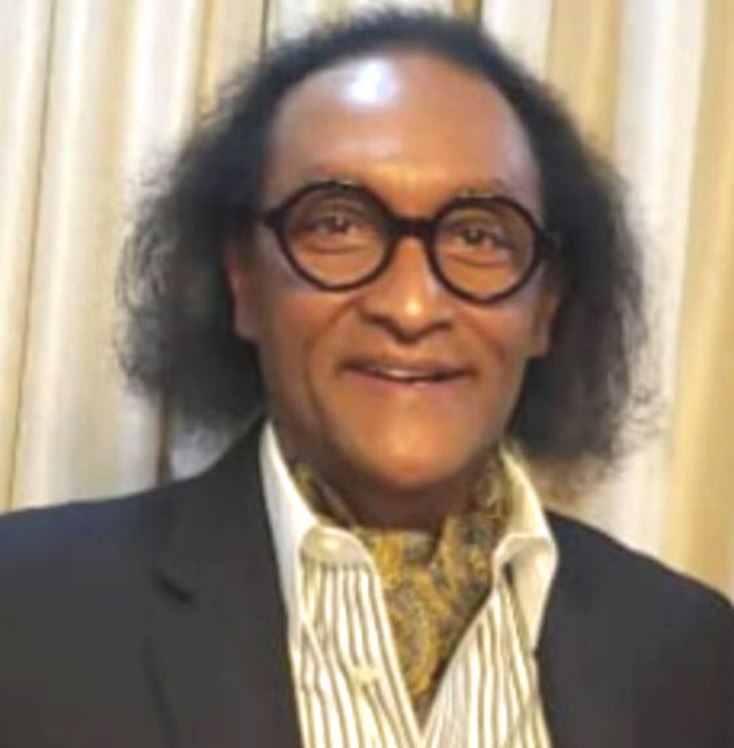REFLECTIONS ON ETHIOPIA’S JUNE 21, 2021 GENERAL ELECTION (Part I)

Blen Mamo*
Special Guest Commentary
All elections have their own ritualistic aspect that arouse emotions and channel them towards collective national symbols and common fate. However, the upcoming election in Ethiopia is said to be overshadowed by ethno-religious tensions, the Tigray crisis and Grand Ethiopian Renaissance Dam (GERD) related national security threats posed by Egypt & Sudan.
The government of Prime Minister Abiy Ahmed has committed to holding elections despite mounting internal and external pressures to disrupt it. According to the government, the upcoming election is an epochal juncture in modern Ethiopian political history, a ray of hope for the long awaited democratisation and development of the nation.
For some opponents of the government, including the Tigray People’s Liberation Front (TPLF) and Oromo Liberation Front- Shene (OLF-Shene) terrorists) and some members of the international community, especially the US, UK and the EU), the election is a fait accompli that adds no value to Ethiopia’s effort to democratize itself. They suggest having the election could pose a grave risk of instability that could further lead to disintegration given the current ‘fragility’ of the state and the ‘debilitation’ of the federal government. This apprehension is also shared and amplified by ethnocentric domestic politicians, and at times, by some academic and political elites and public figures expressing genuine concerns.
The question is whether the upcoming election is a watershed in modern Ethiopian political history or a fait accompli. In this commentary, I aim to examine the government’s position and the rationale behind pushing for election. I also aim to scrutinize the structural fitness, institutional capability and security issues to hold elections under the current conditions. I shall offer my predictions on whether the election will be free and fair or as some have claimed merely “cosmetic” and its implications for Ethiopia’s future.
Ethiopian Spring?
In April, 2018, Abiy Ahmed Ali was legitimately elected by his party to become prime minister and chairman of the Ethiopian People Revolutionary Democracy Front (EPRDF), a multiparty “coalition” dominated by the now outlawed and terrorist-designated TPLF. In 2015, the EPRDF claimed to have won one hundred present of the seats in parliament.
After overthrowing the socialist military Derg dictatorship, the EPRDF was arguably Africa’s largest political party dominating Ethiopian politics for nearly three decades.
In December 2019, Abiy Ahmed formed Prosperity Party and effectively disbanded the EPRDF. With the exception of the TPLF, the other coalition members of the EPRDF joined Prosperity. The TPLF refused to join and continued to undermine, oppose and block reforms being implemented by PM Abiy. The TPLF claimed PM Abiy was not engaged in reform but in dismantling and demolishing “federalism” and “revolutionary democracy.” The TPLF leadership isolated itself and began organizing and financing destabilizing forces to disrupt the reform process.
There is no stone the TPLF leaders have left unturned in their quest to restore their power and privilege in Ethiopia. They have questioned the legitimacy of PM Abiy whom they voted for to lead their party and the nation. They held an illegitimate regional election defying the federal government and the national election board. Even worse, they organised and financed domestic terrorism to facilitate a brutal attack against non-Tigrean civilians across the country, mainly targeting Amharas. Finally, in a mixture of conviction, stupidity and arrogance, they treasonously attacked the Northern Command of the Ethiopian National Defense Force and committed horrendous crimes ushering the current crisis in Tigray.
In the midst of all these events, PM Abiy Ahmed’s government reluctantly kept pushing for an election despite security and other concerns raised from both internal elements and external powers who kept flipping their positions to stand against whatever the government proposed to do. When the government insisted on an election, they have security concerns. When the government cancelled the election due to Covid 19 concerns, they started questioning the legitimacy of the government past the constitutional election date and called for the formation of a transitional government.
Despite the challenges, the National Election Board decided to hold the election in mid-June, 2021 with zero possibility of extension or cancellation. Prosperity Party, Ethiopian Citizens for Social Justice (EZEMA), National Movement of Amhara (NAMA), Balderas, All Ethiopian Unity (AEU), Enat Party and Hiber Ethiopia qualified to participate in the election. The Oromo Liberation Front (OLF) and Oromo Federalist Congress (OFC) pulled themselves out of the competition. OFC, under the official leadership of Prof. Merarra Gudina and the shadow leadership of the Islamist Oromo extremist Jawar Mohammed ended up pushing the TPLF’s agenda against PM Abiy and perpetuated the false narrative of an Abiy “illegitimate government” and advocated the establishment of a transitional government.
Similarly, the OLF, a former violent insurgency group that was permitted to return and engage peacefully in the political process under PM Abiy’s leadership also continued to push the TPLF’s agenda to delegitimize the Prime Minister and degrade public confidence in his administration. In a mischievous approach, they declared any government that was not elected by October 10, 2020 would be illegitimate and without the power to govern. The OLF also called for a transitional “federalist” government as it became clear to them that their path to election victory was nil.
The OLF “Shene”, purportedly military wing of the OLF under Dawud Ibsa’s leadership [an ideological and strategic ally of the TPLF and OFC] , was recently designated a terrorist group along with the TPLF. Shene, with TPLF support and financing, has committed heinous acts of terrorism resulting in untold deaths and destruction of property.
The TPLF after a devastating defeat by the ENDF in the war they themselves instigated has been engaged in massive global disinformation campaigns playing victims of their own crimes hoping to force the Ethiopian Government to negotiate with them. They have tried to degrade Ethiopia’s the international image and continue to coordinate diplomatic pressure on PM Abiy Ahmed’s administration in flagrant disregard of Ethiopian sovereignty.
The rationale behind “no election”
Whether “misled” by TPLF (dis)misinformation propaganda or driven by their own agenda to intentionally manipulate the internal sociopolitical rifts in Ethiopia to advance their own interest in the Horn of Africa, the West has now picked the side of terror and chaos entrepreneurs in an effort to undermine Abiy Ahmed’s leadership, and the upcoming election. For some time now, Western politicians and media have been portraying the election as a fait accompli that delivers nothing significant than extending the office term for the “Authoritarian” Abiy Ahmed, or a watershed moment that will reduce Ethiopia to ashes.
To justify this roguish approach, the West, particularly the US, UK and EU cite imaginary “security threats” that resulted from the ‘war’ in the north where the TPLF was crushed and its nearly all of its top leaders captured or dead. The West conveniently ignores the myriad of massacres the TPLF and the “Ethno-Federalist” and their separatist allies have orchestrated and perpetrated in various parts of the country with the alleged support of external ‘enemies’ like Egypt and Sudan. The US has now imposed a gimmicky sanctions ‘targeting’ Ethiopia’s economy and security under the pretext of ‘Humanitarian Crisis’ in Tigray.
However, when carefully assessed, the ‘sanction’ and overall diplomatic pressure is intended to flash a red light for Abiy Ahmed to align Ethiopia’s interest with Western, particularly American interest in the Horn region to counter the growing ecopolitical and military influence of China, Russia and now Iran and the UAE in Ethiopia.
The U.S. “sanction” in its present form poses no significant economic restrictions although it disallows development and security aid which extends Trump era policy. The visa restrictions apply to unnamed Ethiopian and Eritrean officials. Notably, the “sanction” language avoided inflammatory terms like “genocide”, “ethnic cleansing”, war crimes”, etc. irresponsibly and casually used by US Secretary of State Anthony Blinken, and other Western government officials. The role of Egyptian lobby and the Arab League’s political pressure is also of significant contribution towards the current sanctimonious position of the US against Ethiopia.
The US and its western allies have repeatedly called on the Ethiopian government to extend or cancel the upcoming election and hold national dialogue with political ‘representatives’ of different ethnicities in Ethiopia, including the Islamist extremist Jawar Mohammed and the TPLF terrorists’ political and military leadership. The Ethiopian government, however, has made it abundantly clear that it will not negotiate with terrorists that attacked its Northern Command and massacre civilians.
Such diplomatic and propaganda pressure has now upgraded its form and the EU and other Western institutions have refused to observe the election in an effort to undermine its legitimacy. In addition, Western politicians, scholars, so-called human right groups and media have been labeling the upcoming election as a fait accompli trivializing the historic event. They further warn if the election is held it could portend the dissolution of Ethiopia.
It has to be noted that such fear is also understandably shared by a number of Ethiopian elites, whether they support Abiy Ahmed or not. In contrast, Abiy Ahmed’s administration and his supporters, who consider themselves ‘the silent majority’, claim the reverse. They dismiss such concerns as propaganda driven by sidelines ethnonationalists. They believe this election is a watershed and a long-awaited ‘genuine’ democratisation which will guide prosperity of Ethiopia.
The majority of Ethiopians believe even with the risk of an escalated security crisis on the horizon, the election will provide Abiy or whoever wins the election the power and confidence to take bold measures, thereby facilitating peace, security, and development in Ethiopia. On the other hand, the extreme Oromo nationalists believe this election will provide Abiy Ahmed the legitimacy to implement the ‘Amhara’s anti-federalist agenda at the expense of the Oromo people and other ‘federalist forces’. Meanwhile, the Amhara ethnonationalists observe each and every move with strong suspicion, at times claiming Abiy Ahmed is implementing the ‘Oromuma Project’ at the expense of the Amhara people thereby causing existential threat. Likewise, the TPLF oriented extremist Tigray nationalists accuse Abiy of every conceivable war crime and continue to propagate their never-ending disinformation and propaganda campaigns to discredit Abiy’s administration.
In this context, will the election is really a fait accompli, i.e. a cosmetic election conducted to meet the bare minimum requirement of holding an election or a watershed in Ethiopia’s political history, i.e. an epochal juncture towards a bright future, or a dark one.
A watershed or a fait accompli?
Among the various justifications critics of the current Ethiopian government present to support their objection to the upcoming elections is that it is a fait accompli where the outcome is predetermined. Abiy’s Prosperity Party will win. The election will solidify Abiy Ahmed’s power and pave the way to dictatorship. The critics, however, intentionally ignore the fact that Ethiopia is in transition from authoritarianism to democracy, simultaneously undergoing political, economic and social reforms. And in times of transition, holding elections, whether free and fair is normally considered the minimum requirement a government should undertake. Thus, neither the international critics nor the domestic opponents of Abiy Ahmed should totally dismiss the election nor expect the same standard of fairness and efficiency that occurs in the ‘advanced democracies’ of Europe and the US. They should focus their energies to ensure a peaceful transition and help build strong democratic institutions for the future.
The election does not guarantee that Abiy Amhed will not replace the collapsed TPLF dictatorship, or be even more repressive. However, given his track record over the past three years, it seems highly unlikely he will choose the path of dictatorship than democracy. One thing is for sure. Ethiopia’s democratic experiment may hit a few bumps during the transition process and democratic rights may be curtailed but Abiy will stay the course of democratization in the long term.
Abiy Ahmed’s opponents and international critics have repeatedly denounced the unwavering determination of the Ethiopian government to hold this election despite the “lack of institutional efficiency” and “logistical woes”. They dismissed such commitment as a rather meaningless attempt to dress authoritarian rule in the trappings of democracy. They assert the self-expulsion of political parties from the election is a worrying sign that the election is nothing but a sham.
However, the objective analysis of the facts on the ground suggests the contrary, especially given the rigorous institutional and legal reforms conducted on the National Electoral Board of Ethiopia (NEBE), its highly respected Commissioner former Judge Birtukan Midekksa, substantial revisions to the national electoral law and the relatively wide space provided for political parties to freely engage in political debate and discourse since Abiy took office. In addition, the very suggesting the election will lead to a likely reversion to authoritarianism based on the fact that few political and crisis entrepreneurs are behind bars and TPLF terrorists are demised in an effort to ensure the rule of law is flabbergasting. It sends a wrong and dangerous message that political candidates or figures cannot be held legally accountable for the crimes they recklessly commit, including endangerment of the country’s sovereignty in the name of “reconciliation” and “consensus building”.
Moreover, such views undermine the significant reforms made to and by the national election board in order to enhance its capacity and ensure its legitimacy to efficiently hold the election. Such reforms are one of a kind that enables NEBE to preserve the frequency and competitiveness of elections, and ensure the availability of general political information (about policies, candidates, performances etc.).
In addition, post-reform NEBE is in relatively in a good position to ensure acceptance of rules, free speech and association, equal access to voting, enforceable election laws and so forth thereby enhancing public confidence in the system [especially compared to the TPLF regime’s NEBE which certified 100 percent election victory] legitimising the overall procedure and process of the upcoming election. Moreover, the reform in the justice and security sectors is also a plus to the overall effort being made to ensure the objectiveness, effectiveness and reliability of the election and its outcome.
Election is not a one-size-fits-all solution
Election is not a one-size-fits-all solution for the difficult challenge of transforming oppressive states into free and open societies. It cannot always be perfect, nor could it always determine the fate of nations by following the Western playbook. Elections could be democratic or cosmetic depending on the socio-political and economic situation of nations. Similarly, when held in nations undergoing democratic transitions from autocracy, they could be a turn to the best or to the worse. Ethiopia, as a nation transitioning from half a century of authoritarianism, is faced with the same challenges, an uphill battle to democracy, prosperity and stability or a downhill slide into authoritarianism.
Come what may, the upcoming election, whether free and fair – or “fake it till you make it” – is a historically significant event in Ethiopia’s transition to democracy, especially given the nation’s long history of violent political transitions. The election will not only shape the political future of Abiy Ahmed, but also the democratic and economic future of Ethiopia. It gives an important signal of whether democracy can be immersed and consolidated in Ethiopian politics, given the undeniable impact it will have on the prospects and arrangements of the current regime and the country’s general political culture. Moreover, the resolute determination of the government to hold the sixth general election in a period of transition and crisis is sufficient to suggest that Ethiopia is at least not bouncing back to the 1970s – or even worse – and we are rather heading on the right and straight path to democracy.
==============
*Blen Mamo is a lawyer and political and security analyst. She has worked as a legal and human rights professional in Ethiopia where she obtained her LL B. Blen hold an MSc in International Security and Global Governance from Birkbeck, University of London Department of Politics.





